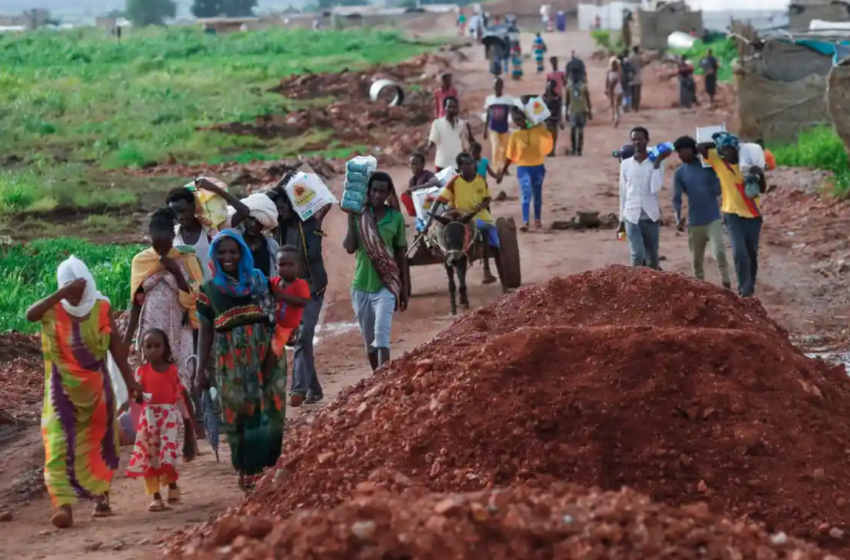
Learn lessons of Rwandan genocide and act now to stop Ethiopian war, UN urged
African groups urge UN to press for humanitarian access and peacekeeping force to be deployed in Tigray amid atrocities
Source: The Guardian
African civil society groups have accused the United Nations of inaction over atrocities in Ethiopia, warning in a letter that it had not learned the lessons of the 1994 Rwanda genocide and that the “situation risks repeating itself in Ethiopia today”.
Tens of thousands of people are thought to have been killed and millions more displaced since war broke out between Ethiopia’s federal government and the Tigray People’s Liberation Front (TPLF), the ruling party of the country’s northern region, in November 2020.
All of the parties in the war have been accused of crimes including arbitrary killings, mass rape and torture, while ethnic Tigrayans across the country have been subject to mass arrests amid a spike in hate speech, which has seen the prime minister, Abiy Ahmed, refer to the Tigrayan rebels as “weeds” and “cancer”.
In the letter to the UN secretary general, António Guterres, 12 African civil society groups including the Kampala-based Atrocities Watch Africa, the Institute for Human Rights and Development in Africa and Nigeria’s Centre for Democracy and Development called on him to “provide leadership in ending the ongoing war in Ethiopia”.
“Twenty-eight years ago, the security council similarly failed to recognise the warning signs of genocide in Rwanda or act to stop it,” the signatories said, adding: “We are concerned that the situation is repeating itself in Ethiopia today. We call on you to learn the lessons from Rwanda and act now.”
In November 2021, the UN security council issued a statement expressing concern over the fighting, but it has yet to take any concrete steps towards resolving the conflict.
Last month, a report by Amnesty International and Human Rights Watch accused forces from the Amhara region of waging a campaign of ethnic cleansing against Tigrayans “with the acquiescence and possible participation of Ethiopian federal forces”.
Dismas Nkunda, head of Atrocities Watch Africa, said: “With reports of ethnic cleansing coming out of western Tigray, there is real reason for concern that some of these crimes reach the level of genocide, and it’s essential that the United Nations grasp the seriousness of the current situation and respond accordingly.”
The UN human rights council has appointed a team to investigate abuses committed during the conflict, although the government has vowed not to cooperate.
Tigray has been largely cut off from the rest of Ethiopia since the fighting began, with transport and communications links cut. About 90% of the region’s 5.75 million population are in need of aid, and the region’s health bureau estimates that at least 1,900 children under the age of five died of starvation in the past year.
In March, the government unilaterally declared a “humanitarian truce” to allow supplies to reach the region, but only a handful of aid trucks have arrived since then.
The letter urges the UN security council to press for “immediate and unimpeded humanitarian access [to Tigray]” and “impose an arms embargo on all parties to the conflict”.
The signatories also call for deployment of an international peacekeeping force led by the African Union, which has its headquarters in the Ethiopian capital, Addis Ababa.
“Such action will be vital to assisting the Ethiopian men, women and children who have been suffering both direct hostilities, associated human rights violations and obstructed humanitarian aid,” they said.
Feature image: Ethiopian refugees who fled fighting in Tigray at a camp in Sudan. A report last month accused forces from Amhara of ethnic cleansing against Tigrayans. Photograph: Ashraf Shazly/AFP/Getty
